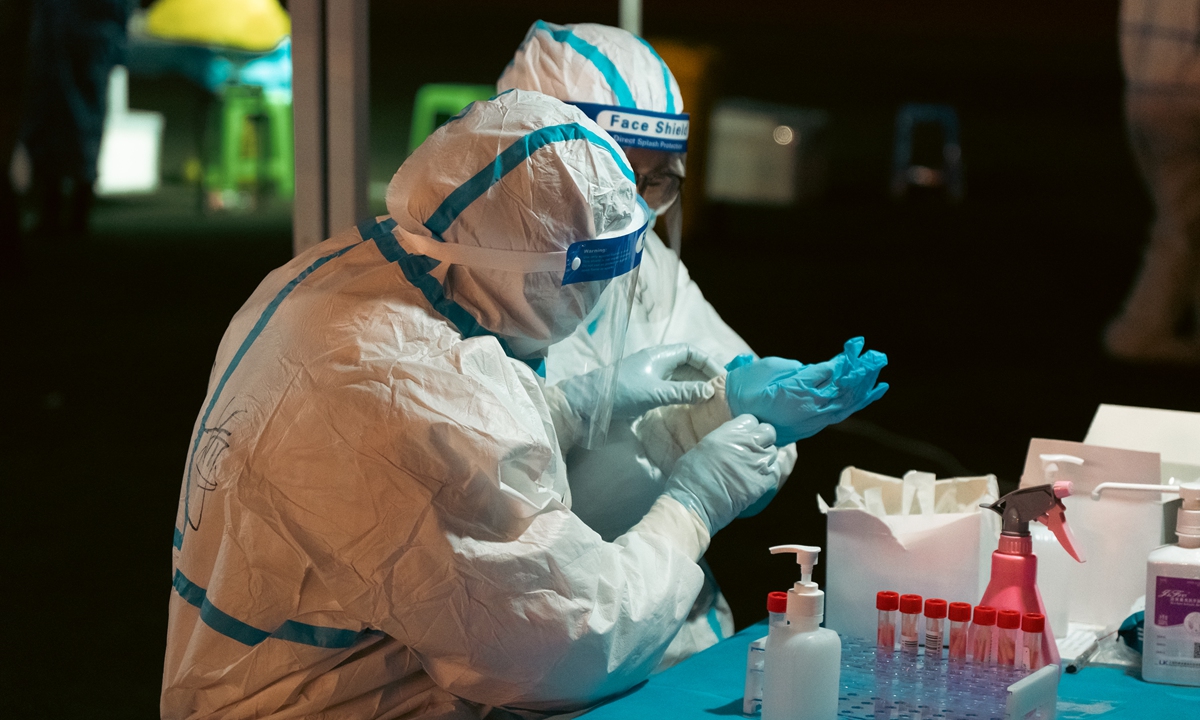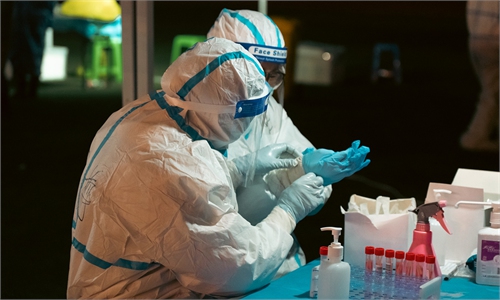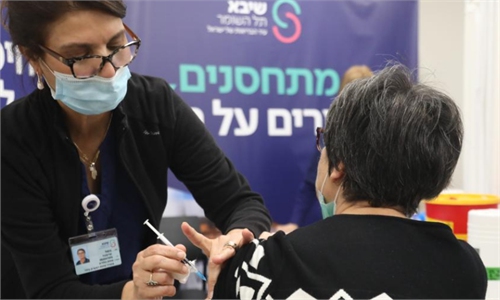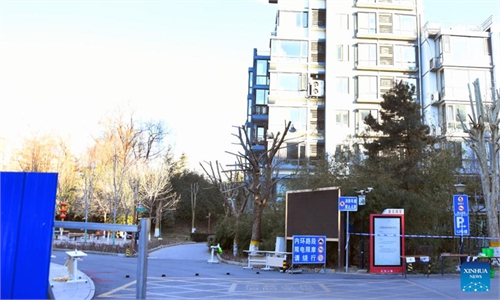China approves 20:1 pooled sampling approach for mass testing in face of Omicron threat

Medical workers collect samples for COVID-19 tests at Tianjin University on January 12, 2022. Photo: VCG
The State Council has approved a 20:1 pooled sampling approach for mass nucleic acid testing, as the country is facing a head-on challenge from the highly contagious Omicron variant.
The new approach involves combining 20 specimens and testing the combination for COVID-19. It will increase efficiency and cut costs, according to a document recently released by the Joint Prevention and Control Mechanism of the State Council.
The new approach will help to increase efficiency of the mass testing program, at a time when there can be no delays, Zhang Yuexin, an expert specializing in epidemic prevention and control, told the Global Times on Tuesday.
China's current requirements for mass testing say that a city of 5 million people must finish mass testing within two days and a city above 5 million must take no more than three days, if an outbreak occurs.
Mass testing is one of the key methods for the country's sustained containment of COVID-19 with the dynamic zero-case policy. A quicker mass testing result means winning more time for the city to screen out potential COVID-19 infections, Zhang said.
China's dynamic zero-case policy stresses "Four-Early" measures: early detection, early reporting, early quarantine, and early treatment of COVID-19 cases.
Wang Guangfa, a respiratory expert at Peking University First Hospital, told the Global Times that the adoption of this new approach also highlights China's determination to stick to the dynamic zero-case strategy, adding that the system has been improved a lot since the start of the pandemic two years ago.
If one of the 20 specimens test positive for COVID-19, all 20 subjects will be quarantined immediately. After they test negative one by one, they will be discharged. The new approach has undergone clinical trials and has been backed by professional organizations and experts, the State Council said.
Previously, China adopted 5:1 and 10:1 batch testing in mass nucleic acid testing. Wang noted that the efficiency of 20:1 pooled sampling won't reduce testing sensitivity.




